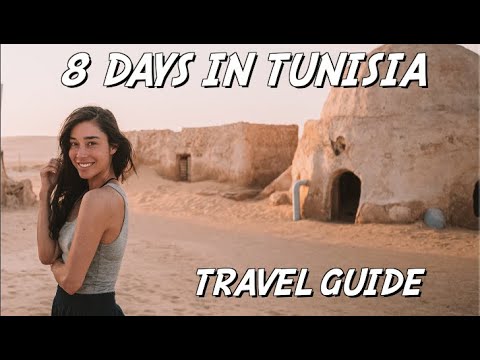
Tunisia, a captivating country in North Africa, is a blend of Mediterranean charm and Saharan mystery. It offers tourists a unique combination of historical landmarks, stunning natural landscapes, vibrant cities, and welcoming locals. From the bustling markets of Tunis to the serene oasis towns of the Sahara, Tunisia promises a memorable travel experience. Here’s a complete guide to help you plan your trip.
## Best Time to Visit
The best time to visit Tunisia is during spring (April to June) and fall (September to November). During these months, the weather is pleasantly mild throughout most of the country, making it ideal for sightseeing and beach activities. The summer months can be extremely hot, especially in the interior regions and the Sahara Desert.
## Visa Requirements
Before planning your trip, check your visa requirements. Many nationalities can enter Tunisia visa-free for up to 90 days. However, requirements can change, so it’s always a good idea to check with your local Tunisian embassy or consulate before traveling.
## Getting There
### By Air
Tunis-Carthage International Airport is the main gateway for international travelers coming into Tunisia. Other significant airports include Enfidha-Hammamet International Airport and Monastir Habib Bourguiba International Airport.
### By Land
You can also enter Tunisia by car or bus from neighboring countries like Algeria and Libya. However, ensure you’re aware of the current travel advisories.
### By Sea
Regular ferries connect Tunis with several European ports (mainly Italian), providing an alternative way to reach the country.
## Getting Around
### Public Transportation
Tunisia has a network of buses and louages (shared taxis) that cover most cities and towns. Trains are available between major cities like Tunis, Sousse, and Sfax but are relatively slow.
### Car Rental
Renting a car gives you flexibility but be prepared for aggressive driving habits and occasionally poorly maintained roads outside urban areas.
### Taxis
Taxis are abundant and affordable in cities but make sure to insist on using the meter.
## Where to Go
### Tunis
The capital city offers a mix of old-world charm in its Medina—a UNESCO World Heritage Site—and modern lifestyle in its new city quarters. Key attractions include Bardo Museum with its impressive Roman mosaics collection and vibrant Souk markets where you can shop for local handicrafts.
### Carthage
Once a great city of antiquity rivaling Rome itself; today’s ruins provide insight into its illustrious past including baths, temples and theatres.
### Sidi Bou Said
A picturesque village with white-washed walls and blue doors overlooking the Mediterranean; perfect for art lovers due to its numerous galleries.
### Sousse & Monastir
Both are coastal towns offering beautiful beaches along with fascinating historical sites such as Ribat fortress-monastery in Monastir which doubles as a museum showcasing Islamic artifacts.
### Sahara Desert
Venture into towns like Douz or Tozeur from where you can organize Sahara expeditions involving camel trekking or jeep safaris through awe-inspiring landscapes like Chott el Djerid salt lake or shifting sand dunes near Ksar Ghilane oasis..
## What to Do
– **Explore Roman Ruins:** Beyond Carthage are exceptional ruins at Dougga and El Djem; their well-preserved states offer deep dives into ancient history.
– **Discover Islamic Architecture:** The Great Mosque of Kairouan is an architectural masterpiece not to miss.
– **Relax on Beaches:** Djerba Island provides tranquil beach settings combined with distinctive culture.
– **Adventure Sports:** From windsurfing at Port El Kantaoui to hiking in Ain Draham mountains or exploring underground caves near Jebel Serj.
## Local Cuisine
Tunisian food is rich with flavors influenced by various civilizations that have crossed this land. Do try Brik (a crispy egg-filled pastry), Couscous (the national dish often served with seafood or lamb), Harissa (a spicy chili paste), Tabbouleh (parsley salad), Makroud (semolina cakes soaked in honey).
## Cultural Etiquette
Respect local traditions especially around religious observances such as Ramadan when eating publicly during daylight hours might be frowned upon. Also remember modest dress codes particularly when visiting mosques or rural areas; shoulders should be covered along with knees typically covered too out of respect towards conservative societal norms prevalent across many parts of Tunisia .
## Safety Tips
While generally safe for tourists , it’s always wise practice common sense security measures such as guarding personal belongings against theft especially crowded areas . Stay updated about regional developments that might affect security .
**Conclusion**
With careful planning , visiting this diverse North African nation can prove highly rewarding given its rich history , vibrant cultural offerings coupled stunning landscapes — truly making it traveler’s delight! Whether exploring ancient ruins basking sunny Mediterranean beaches venturing awe-inspiring Saharan landscapes – Tunisia awaits unveil all its treasures those who seek them .
